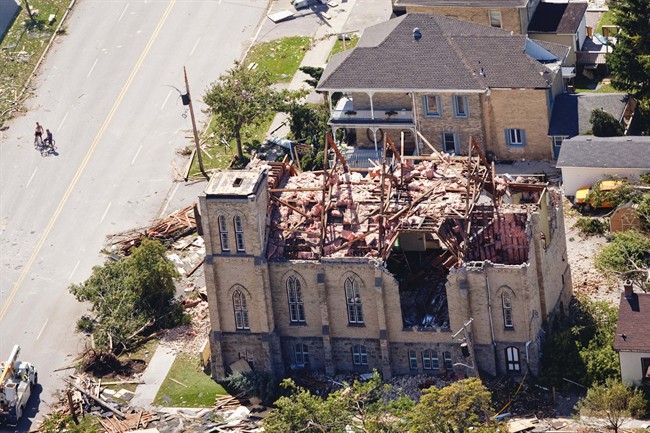WINDSOR, Ont. – The provincial government is supporting a new program launched by members of the Great Lakes and St. Lawrence Cities Initiative in an effort to adapt their municipalities to climate change.

The one time, $145,000 grant will help develop the Municipal Adaptation and Resilience Service or MARS program.
The goal of MARS is to give member municipalities a portal where they can share information to help them adapt and prepare for major environmental events such as storms and flooding.
Recent extreme weather events – such as the 2011 Tornado in Goderich, 2012 flooding in Thunder Bay, and flooding in Toronto and Grand Rapids, Mich., in 2013 – are held up as examples of how climate change is affecting the Great Lakes region.
The group plans to document each municipality’s adaptation measures for the next two years and share them through the MARS portal along with climate change resources and training materials.
Mayors meeting Friday in Windsor said MARS will also put tools in the hands of municipalities to assess their vulnerability to climate change.
Thunder Bay Mayor Keith Hobbs introduced the program and says there are five main elements – the first being to ask member mayors to share their adaptation efforts other municipalities.
Training webinars will be held from now until April to show municipal staff how they can access and use weather data relevant for their municipality, Hobbs said.
Windsor West MPP Teresa Piruzza said in announcing the funding for MARS that the Ontario government is pleased to support adaptation in the Great Lakes region.
“Climate change is real, it’s here, and its impacts are being felt in the Great Lakes region, its tributaries and its shoreline,” Piruzza said.
The Great Lakes and St. Lawrence Cities Initiative is a binational coalition of 111 mayors and other local officials, representing municipalities with a total population of 17 million.

Comments